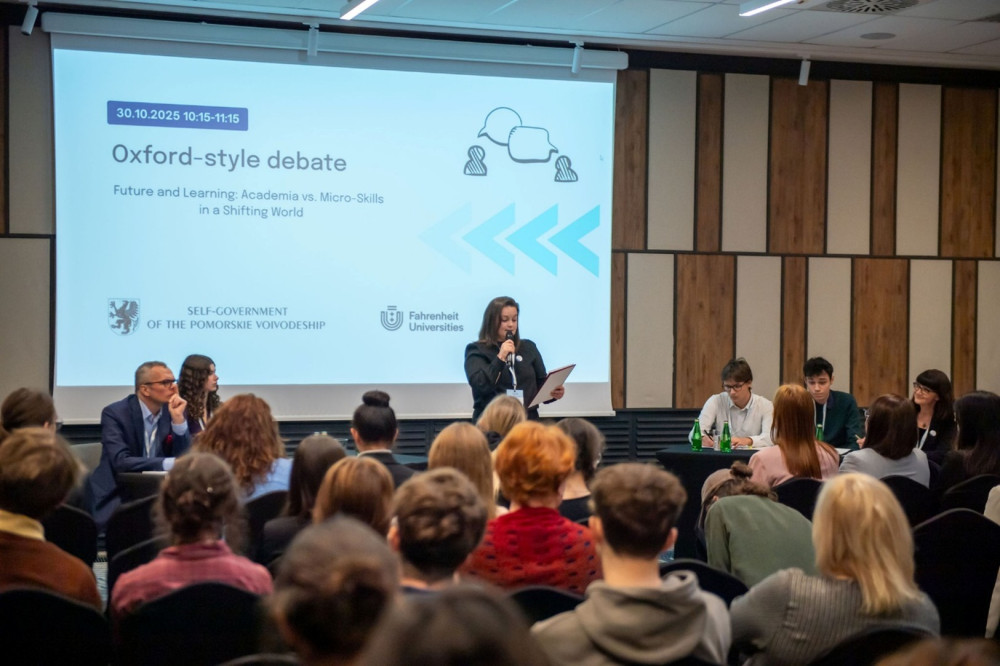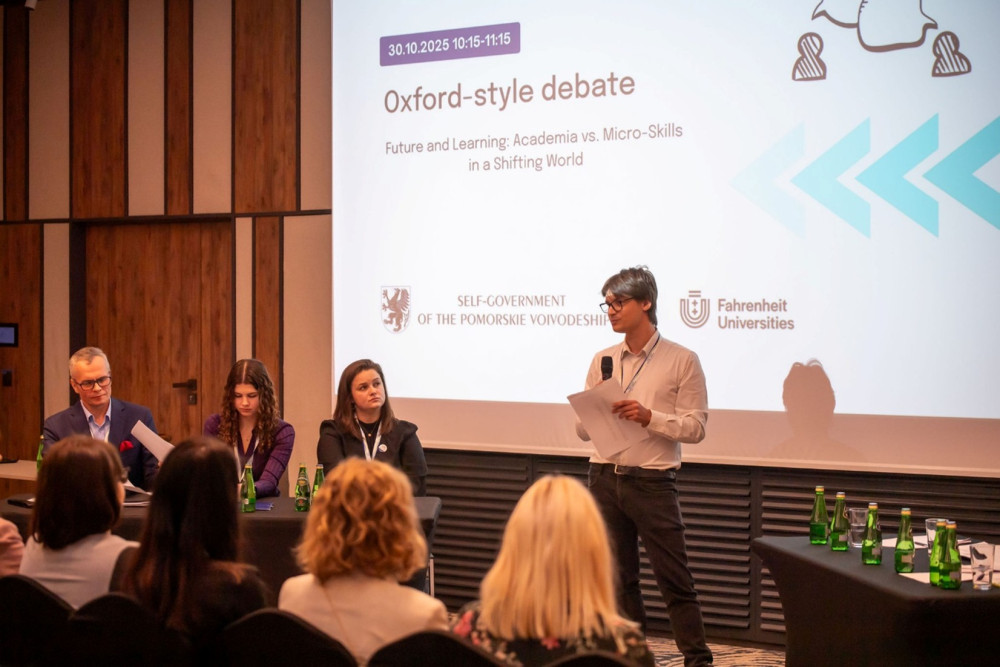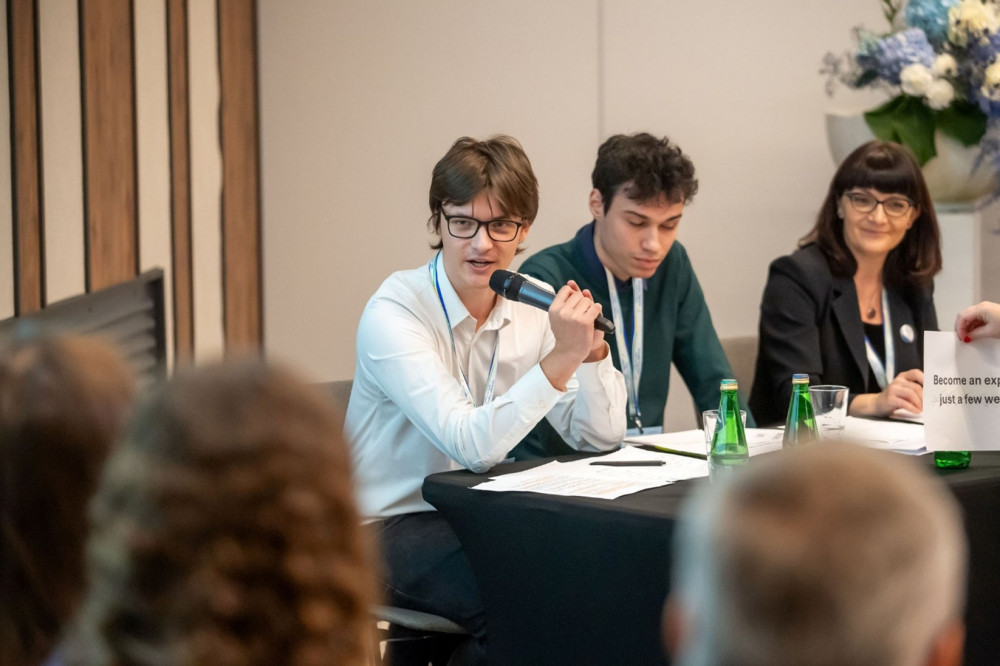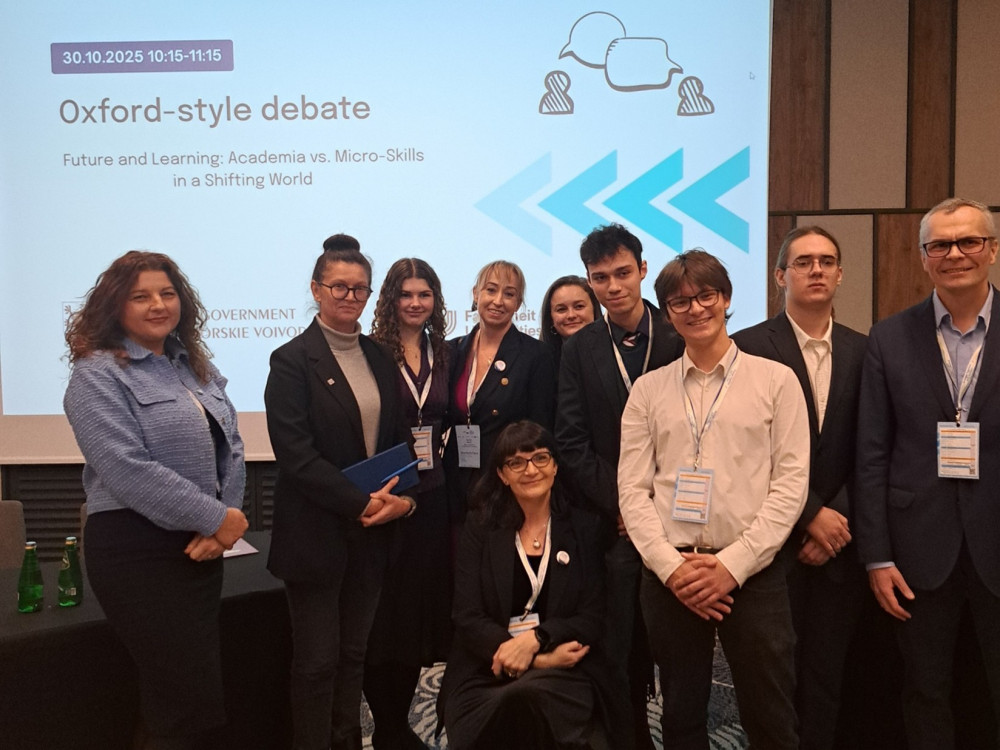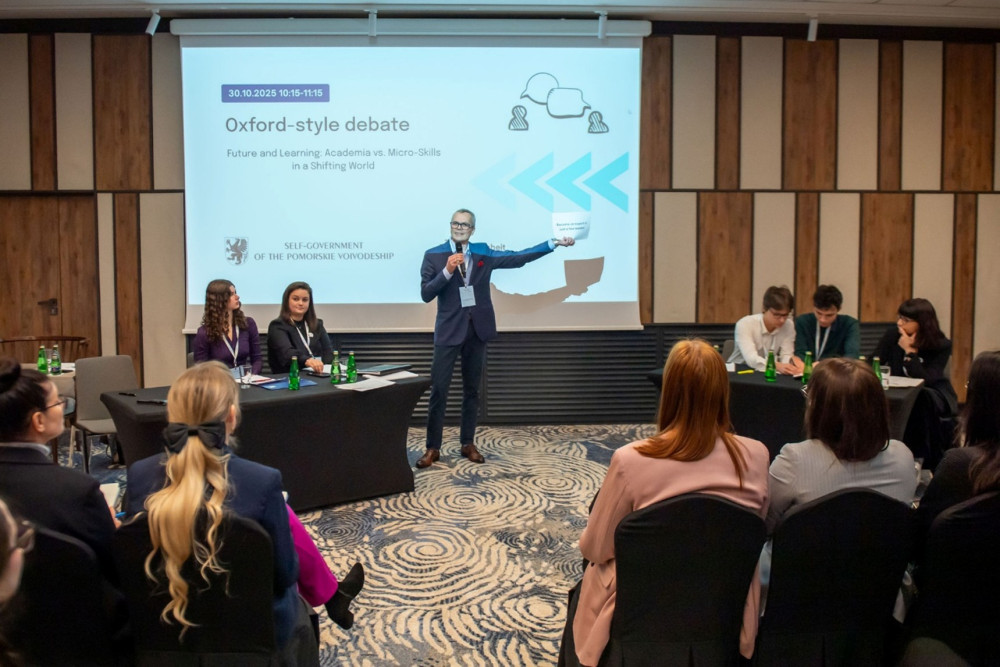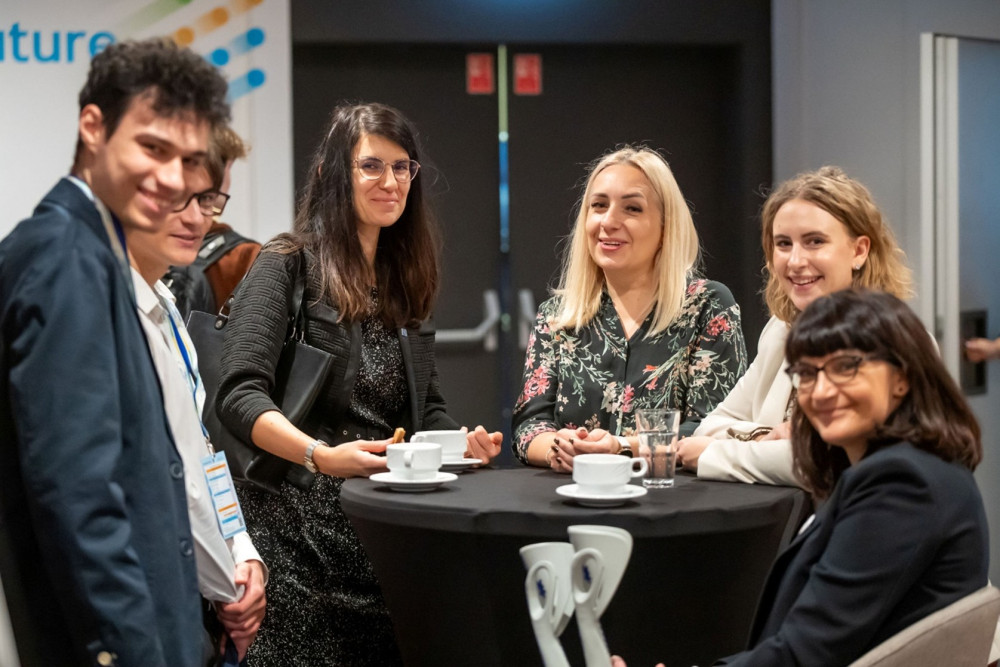Oxford Debate on the Future of Education as Part of the EUSBSR Annual Forum
As part of this year’s EU Strategy for the Baltic Sea Region Annual Forum (EUSBSR Annual Forum), an English-language Oxford debate entitled “Future and Learning: Academia vs. Micro-Skills in a Shifting World” was held on October 30, 2025.
The discussion focused on the challenges faced by modern education systems in the context of dynamic labour market changes and the growing importance of micro-credentials and short online learning formats.
The debate featured dr Magdalena Markiewicz, Vice-Dean for Development and Cooperation with the Socio-Economic Environment at the Faculty of Economics, University of Gdańsk, who represented the academic community in a discussion on the future of teaching and competence development in a changing world.
The debate was part of a programme carried out in cooperation with the Fahrenheit Universities and the Pomeranian Voivodeship Government, which supports the development of young talents in the region. The participants prepared numerous arguments addressing both the current state and the future of academic education.
The Oxford-style debate, moderated by dr Iwona Świątczak-Wasilewska from the Institute of English and American Studies, Faculty of Languages, University of Gdańsk, featured the following participants:
dr Magdalena Markiewicz (Faculty of Economics, University of Gdańsk), Miłosz Płoszyński (student at Gdańsk University of Technology), Filip Walczak (student at the Technical School Complex of Telecommunications in Gdańsk), dr Sebastian Wilczewski (Requirements and Analysis Team, Nordea), dr Weronika Ciećko (Centre for Competence Development, Integrated Care and e-Health, Medical University of Gdańsk), and Natalia Jackiewicz (student at the University Secondary School with Bilingual Units named after Paweł Adamowicz in Gdańsk).
Both sides presented well-prepared and engaging data, examples, arguments, and counterarguments, highlighting numerous factors that influence decisions about career paths and personal development in today’s challenging world, including:
- the impact of AI solutions and the skills needed to harness technological progress,
- access to services and knowledge,
- adaptability of future employees, universities, and employers,
- approaches to the use of knowledge and skills, including the growing importance of critical thinking.
The thesis of the debate was: Traditional academic studies are no longer the most effective path to acquiring competencies or building the skills necessary for professional success in a rapidly changing world.
As a result of the debate and the ensuing discussion, it was concluded that a solid academic education remains a lasting foundation for career development. In contrast, micro-trainings and flexible forms of education can serve as valuable complements that respond to the needs of the modern labour market.
The jury members were: Prof. Adriana Zaleska-Medynska, Director of the Daniel Fahrenheit Universities Union in Gdańsk, Monika Zdroik, Deputy Director for International and Interregional Cooperation at the Marshal’s Office of the Pomeranian Voivodeship, and Agnieszka Malinowska, Principal of Primary School No. 88 named after D.G. Fahrenheit. Miłosz Wojtyna from the Institute of English and American Studies, Faculty of Languages, University of Gdańsk, provided support in the preparation process.
